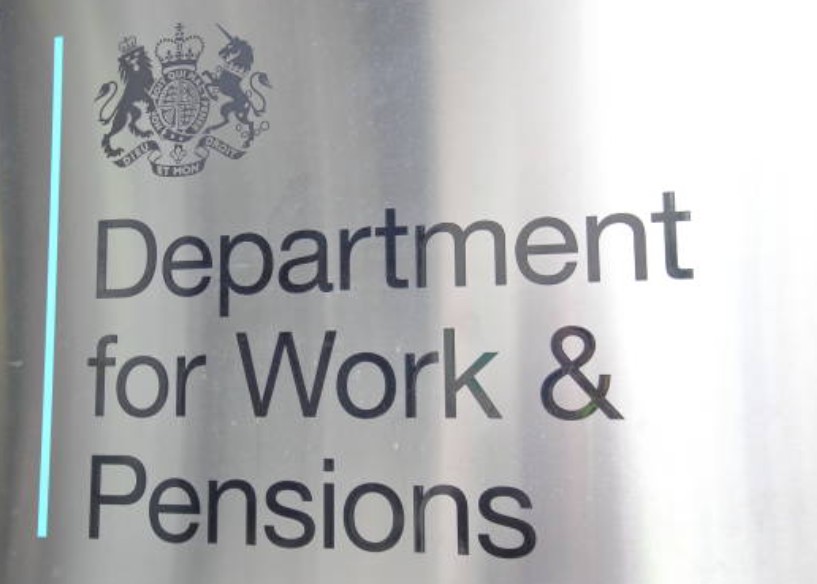As autumn bites, UK households brace for rising bills amid ongoing financial pressure.
The summer heat may have faded, but for millions across the UK, the chill of financial stress is only just setting in. While inflation has eased back to pre-pandemic levels, everyday costs continue to climb. Wages have stagnated, and household bills remain stubbornly high.
A staggering number of people are feeling the strain. According to the Trussell Trust, around 14 million adults are skipping meals because they simply can’t afford them.
Energy arrears have also skyrocketed, reaching £3.9 billion by the end of 2024, more than double what they were five years ago.
And it doesn’t stop there. The Joseph Rowntree Foundation has warned that low-income households are on course for the steepest drop in living standards on record before the next general election.
Every penny counts right now. People need to know what they’re entitled to and how to get it.
That’s why understanding what support is available this October is crucial. Here’s what you need to know about payment dates, rising rates, and other financial lifelines to help you through the colder months.
October 2025 Benefits and Pension Updates
Unlike bank holiday months, October’s benefit and pension payments will run as usual. The Department for Work and Pensions (DWP) will issue all regular payments on their normal schedules:
Benefits paid as usual include:
- Universal Credit
- State Pension
- Pension Credit
- Child Benefit
- Disability Living Allowance (DLA)
- Personal Independence Payment (PIP)
- Attendance Allowance
- Carer’s Allowance
- Employment Support Allowance (ESA)
- Income Support
- Jobseeker’s Allowance (JSA)
Tip: You can always check your specific payment schedule through the official GOV.UK website.
The DWP is still in the process of migrating all ‘legacy benefits’ to Universal Credit. This change is set to be completed by January 2026. So, if you’re currently receiving tax credits or older benefits, you should have received a migration notice by now.
Pension Payment Schedule Based on NI Number
State pension payments are made every four weeks, and your National Insurance (NI) number determines the day of the week you’re paid:
| NI Number Ends In | Payment Day |
|---|---|
| 00–19 | Monday |
| 20–39 | Tuesday |
| 40–59 | Wednesday |
| 60–79 | Thursday |
| 80–99 | Friday |
What About Benefit Increases?
Back in April 2025, most working-age benefits were uprated by 1.7%, in line with the September 2024 inflation rate. This included Universal Credit, ESA, DLA, PIP, and more.
Pensions, however, got a more generous boost — thanks to the triple lock. They rose by 4.1%, meaning an extra £472 a year for recipients.
Coming in April 2026:
- Universal Credit will see above-inflation increases annually until 2029. The first hike? A minimum 2.3% rise.
- However, health-related Universal Credit payments for new claimants will drop significantly — from £105 down to £50 per month, frozen until 2029. That’s a loss of over £200 a month.
Important: If you think you might qualify for health-related Universal Credit, apply now before these cuts hit.
The state pension is forecast to jump 4.7% in April 2026, bringing the weekly amount to £241.05.
Still Missing Out? £24 Billion in Benefits Goes Unclaimed
Shockingly, around £24 billion in benefits goes unclaimed every year, according to research from Policy in Practice. That’s a huge pot of money sitting unused.
If you’re unsure what you might qualify for, use an entitlement calculator online. It could make a massive difference.
Additional Financial Support Available in October
Aside from regular payments, there are multiple schemes and support options available this autumn.
Budgeting Advance Loans
For those on Universal Credit facing a cash crunch, the government offers interest-free budgeting advance loans:
- £348 for single adults
- £464 for couples
- £812 if you have children
New Labour rules (from April 2025): Deductions to repay these loans are now capped at 15% of the standard allowance, down from 25%.
Discretionary Housing Payments (DHP)
If your housing costs are spiralling, check if you’re eligible for a Discretionary Housing Payment through your local council. It can cover:
- Rent shortfalls
- Deposits
- Rent in advance
You must already be receiving Housing Benefit or the housing element of Universal Credit.
Household Support Fund (HSF)
The HSF remains a vital lifeline for struggling families, offering support like:
- Utility bill contributions
- Essential home items
- Direct cash grants (up to £300)
Local councils distribute the fund, and eligibility criteria vary. The scheme will run until March 2026, before evolving into a new Crisis and Resilience Fund.
Charitable Grants
Charities offer specific grants for:
- Disabled individuals
- Carers
- Bereaved families
- Unemployed people
- Students
Turn2us has an online tool that helps you find grants suited to your circumstances.
Energy Supplier Support
Struggling with energy bills? Many providers offer targeted support:
- British Gas
- EDF
- Octopus
- E.ON
- Scottish Power
It’s worth calling your supplier to see if you’re eligible.
Council Tax Reduction
You could receive up to 100% off your council tax if you’re on a low income or benefits. Even if you don’t meet the standard criteria, local authorities may still offer discretionary discounts in cases of hardship.
Free Childcare
From 1 September 2025, all working UK parents with children under four can access 30 hours of free childcare per week.
Also, don’t forget about Tax-Free Childcare, which refunds 20p for every 80p you spend — up to £500 per year.
Energy Price Cap Is Going Up Again
Ofgem’s energy price cap is rising 2% in October, going from £1,720 to £1,755 per year for the average home. This comes after a 7% cut earlier in July.
Many providers are now offering fixed-rate tariffs lower than the new price cap — it may be time to switch.
Will There Be Another Cost of Living Payment in 2025?
No continuation has been announced by the DWP. The final Cost of Living Payment was made between 6 and 22 February 2024. For now, that scheme has ended.
Support for Mental Health
Financial stress can take a toll. If you’re struggling mentally, help is available:
- Samaritans – Call 116 123 (free, 24/7)
- Mind – 0300 102 1234 (mental health support)
- Scope – Online forums for disabled individuals
- NHS – Offers digital mental health triage services
In a time where every pound matters, knowing what help is out there could be the difference between scraping by and staying afloat. Check your eligibility. Make the call. Claim what’s yours.






